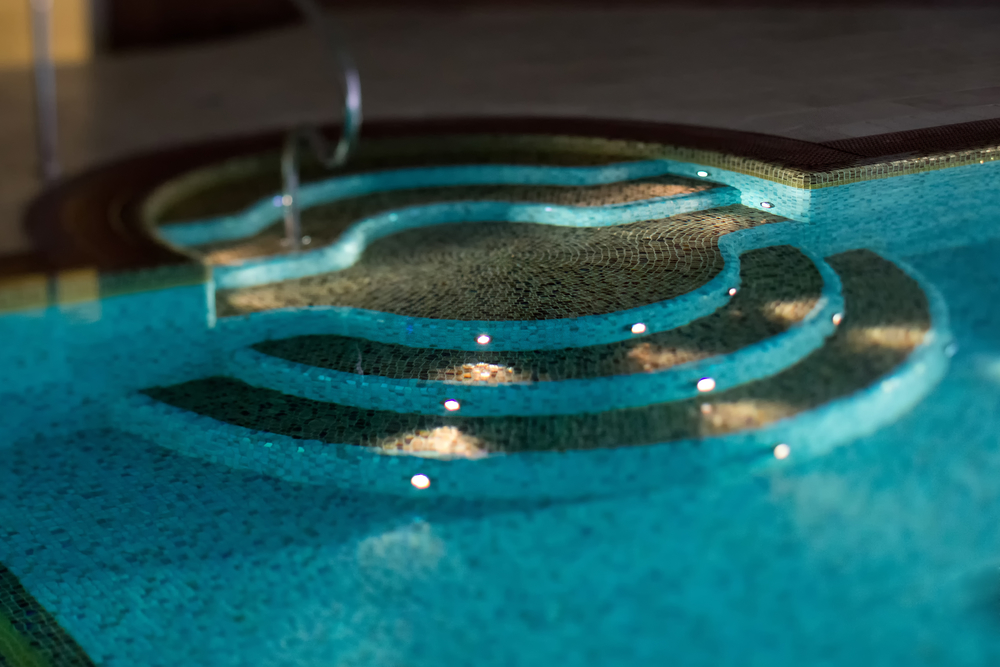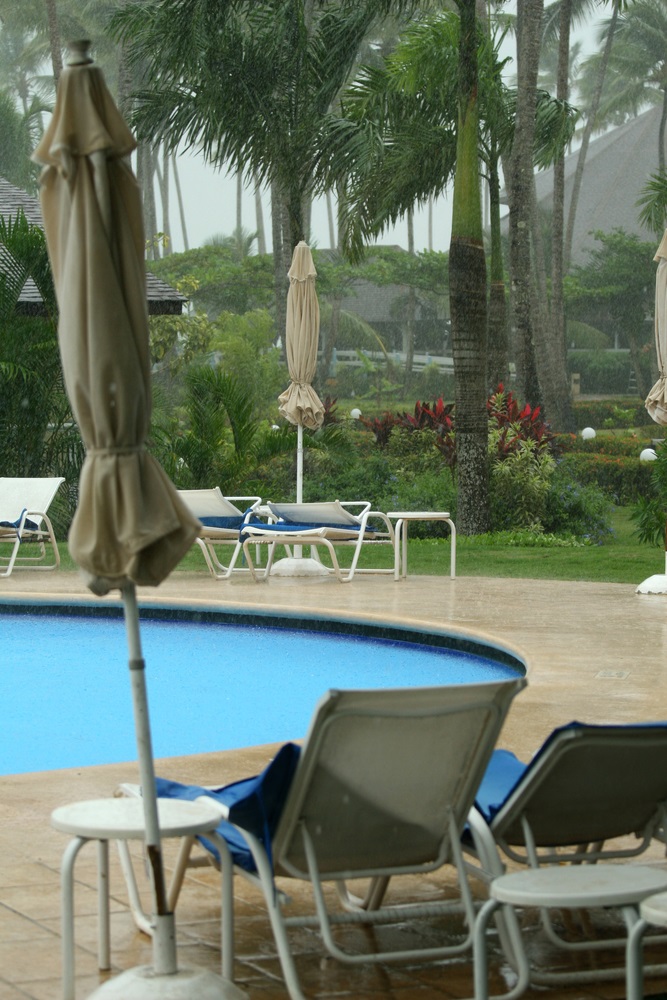They say it takes 21 days to form a habit. That’s a good thing, but you certainly don’t want to take a chance on missing one of those days and skipping a day of pool maintenance, do you? Any pool contractor will tell you that ongoing, regular and scheduled maintenance will keep your swimming pool in tip top shape and will keep the water clean, free of bacteria and prevent algae from making its home in your beautiful swimming pool.
Now that summer is peeking around the corner of the calendar (Spring is going to be here in a couple of days!) you should make plans now to set up a pool maintenance checklist because that will make pool care a breeze.
Even if you work with a swimming pool service contractor, it makes sense for you to have an idea of what goes into pool maintenance and what tasks you should be paying attention to between pool contractor visits.
Pool Maintenance Checklists Make Pool Care A Breeze
Let’s face it, pool maintenance isn’t the sexiest part of being a pool owner BUT it is necessary if you want to protect the investment you’ve made. Whether you’re a new pool owner or a seasoned pool owner, having a written down pool maintenance check list will help you keep track of pool cleaning and water chemical checking duties.
In the crush of daily life, work and children it is easy to lose track of your pool cleaning duties; did you skim the pool today or was it yesterday? When was the last time you’d tested the water chemistry? You don’t want to have to wonder about these items as they could lead to water that will be in need of a major chlorine shocking and other items that could make swimming a distant memory.
Routines let you accomplish more in fewer hours/minutes
Any item that you get into a routine with will take you fewer minutes or hours to complete. Why? Because it will become routine, a part of your day and you will perform the action without even giving it much thought.
When you have to spend less time performing pool maintenance tasks, you will be able to spend more time in the pool with your family!
 Proactive pool care prevents water problems
Proactive pool care prevents water problems
Summertime is when your pool is most vulnerable to all sorts of problems because of the sweltering temperatures and the throng of swimmers introducing a host of contaminants and debris in your pool’s water like suntan lotion, makeup, falling hair, deodorant, and natural oils produced by the body. These can easily bring about a host of pool water problems like cloudy water or algae growth. Unfortunately, there’s just simply no quick fixes for these kinds of problems
You’ll have no choice but to close out your pool and deal with these pool water problems, which can take several days to do. When you have a routine for pool maintenance you will catch any potential water or pool equipment issues and address them early.
Save money
You can save money by having a pool maintenance routine? Yes. How? By having a routine for checking and balancing the chemicals you will be able to catch any potential chemistry issues early and add a few chemicals to bring them back into balance. If the water chemistry is way out of balance it will take a lot more chemicals to adjust it.
Checking and testing the pool water regularly saves both money and time! If you’re in a pool maintenance routine, it will take you less time (see above) to clean and skim and perform routine maintenance tasks.
How to Create Pool Maintenance Checklist
- Choose the right guide: If you’re new to pool care and maintenance, talk with a seasoned pool service professional and ask him for a schedule you can utilize. It is crucial that you have an understanding about pool maintenance and care in order to create a checklist. There are myriad items to take into consideration with your pool maintenance routine — how often you use it, where you live, whether you use a pool cover, how many people use the pool, and more.
Search the Internet for a pool maintenance guide that fits your needs or pay for a visit from a swimming pool service pro to help you get off on the right foot.
- Get the family involved. Remember, if everyone wanted to own a swimming pool then everyone should be involved in its care and maintenance. It doesn’t have to fall on the shoulders of only one person in the household.
On your pool maintenance checklist, put everyone on the list and have each person in the family be responsible for some aspect of the maintenance — depending on the person’s age there is likely a task that will help them get involved.
Some tasks like shocking the water or adjusting pool water chemistry should be left to an adult who has an understanding of the process.
Understand that your family’s swim habits will help you develop a maintenance routine.
- Check with government entities. Many local government entities have specific pool maintenance guidelines, policies and regulations, even for the backyard pool owner. Even if you’ve been maintaining your pool on your own, you should check with them, or with your pool contractor to see if there have been any changes in regulations that may impact how you care for your pool.
Check with your local utility company and ask when the best time of day to run the pool pump is. Chances are they will recommend running it in the overnight hours when there is less draw on the energy grid and the cost to you may be less.
- Write down your pool maintenance schedule
Make certain you’ve written down the maintenance schedule and who is responsible for which aspect. Post the schedule in a place where everyone can see it — the refrigerator, for example.
 Here are samples of tasks and when they should be undertaken:
Here are samples of tasks and when they should be undertaken:
Daily pool maintenance tasks
- Adjust the water levels. Is the pool water at proper levels? If the water is too high, the pool skimmers won’t be able to skim out the debris and contaminants. If the water is too low, the skimmers suck in air, which may cause damage.
- Check the pool water’s pH and chlorine levels. Keep the pool water’s pH and chlorine levels within the normal levels by using a water test kit or taking the water to your local pool store to have them test it for you. The pool water pH level should be anywhere between 7.2 and 7.6 while its chlorine levels should be between 1 and 2 ppm. This task would be on your pool maintenance checklist under: Test water chemistry.
- Inspect skimmer and pump baskets. Check the pool’s skimmer and pump baskets and clear out any debris. Keeping the skimmer and pump baskets clean help the pool pump and filtration system work easier and help preserve their integrity.
- Check the pool pump and filter. Look at the pressure gauge to see if the pressure reading is within normal range. Many pool owners will write on the pump what the proper pressure gauge is. They will also make note of the readings so they can see if the pressure is increasing or decreasing as that could indicate an issue or that the filter needs to be changed.
- Run the pool pump. Running the pool pump circulates the pool water which helps prevent algae growth and helps move debris from the water into the filter and skimmer basket. In the summer months, you should plan to run the pump for about twelve hours a day. You can run it during the overnight for twelve hours or you can run it throughout the day in spurts of time, just keep track of how often you’re running it. It’s better to run it longer than shorter times. Invest in a pool pump timer and you can set it and forget it.
- Check the pool fence and gates. Inspect the perimeter of the pool fence regularly. You can do this when you mow the lawn. Just make sure you make note of it on your pool maintenance schedule.
- Check the pool cleaners. If you use an automatic or robotic pool cleaner, inspect the bags and empty them when necessary.
- Skim leaves and debris. Grab your pool skimmer and scoop up leaves, insects and any other debris from the water. It’s best to scoop them out before they fall to the water and break down and leave their organic materials behind.
Weekly pool tasks
- Shock aka superchlorinate the pool water. Weather conditions coupled with frequent use of the pool makes the water susceptible to issues. Set aside a day a week to shock the pool to clean away any microbes or organic material that could harm the water and your swimmers.
- Brush and vacuum the pool. Brush the sides and bottom of the pool then vacuum up any loosened debris. This needs to be done weekly, either by you or your pool contractor. Don’t forget to brush behind the pool steps.
- Treat and destroy algae. Algae thrives in the heat of the summer, especially if the pool is covered. Algae spores are nearly invisible to the naked eye — pool owners notice algae once it has bloomed and discolored the pool and made it impossible to swim in.
- Check water alkalinity levels. Regular checking and testing of the pool water alkalinity weekly helps assure the pool’s pH levels are within normal range.
- Backwash pool filters. If you have a pool with a sand or DE filter, it will need to be backwashed weekly (ask your pool contractor to assure this is necessary) to rid the water of contaminants and debris.
Monthly pool maintenance tasks
- Deep clean pool filters. If your pool uses a cartridge filter, give the cartridge a chemical soaking followed by a good hose down to get rid of trapped debris and contaminants.
- Test your water. Bring a sample of your pool water to your local pool supply store to have it tested. Even though you’re regularly testing the water yourself, it is always ideal to have the water tested by a professional. This is especially true when it comes to calcium hardness and cyanuric acid levels.
- Check your pool’s time clock. Power outages are frequent during the summer in many areas of the country. If the power has gone out make sure you check any remote control devices and the clocks on each of them to assure they’re back on line.
Annual pool maintenance tasks
- Inspect your pool’s plumbing system. Check each piece of pool equipment and the plumbing and other fixtures. Replace equipment that is showing signs of wear. Lubricate pump lid, filter, chlorinator and the valves.
- Check accessories. Inspect pool lights, the slide, the ladder, the diving board and any other accessories to assure they are securely bolted and that the bolts are still viable.
Be consistent
There is no room, in the world of swimming pool ownership, where you can neglect the pool water for a week or more and expect to go back, throw the cover off and expect the water to be clean and swimmable. It’s up to you to be diligent in its care or to hire a pool contractor who can do that for you.

